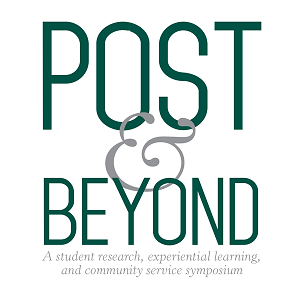Communication Self-Efficacy and Needs Assessment of Workup Specialists at NMDP: A Mixed Methods Study on Consenting Prospective HSCT Donors Regarding Post-Transplant Genetic Findings
Faculty Mentor
Monika Zak and Rachel Rabin
Area of Research
Genetics
Major
Genetic Counseling, M.S.
Description
Recipients of allogeneic HSCT may undergo genetic testing as part of their care, potentially revealing genetic findings of donor origin. To uphold principles of donor safety, autonomy, and informed decision-making, the WMDA has published recommendations, and NMDP (Formerly Be The Match) has implemented a new consenting process (Pryce et al., 2023). Prospective donors must be willing to receive clinically significant genetic findings of potential donor origin as a condition of donation, based on the duty of donation registries to protect the health and safety of their volunteer unrelated donors (VUDs). However, they may choose whether to be informed about uncertain findings such as variants of uncertain significance (VUS). If a finding of potential donor origin is detected, genetic counseling and confirmatory testing are recommended. This mixed methods study assessed the communication self-efficacy of NMDP workup specialists—professionals responsible for consenting prospective donors—through a survey (N=15) and qualitative interviews (N=2). Results indicate that various modalities of professional experience and training, including years as a workup specialist, experience in medical or health settings, and scientific training, did not significantly impact communication self-efficacy. However, results suggest that higher confidence in understanding a genetic VUS was associated with higher overall communication self-efficacy, particularly in clarifying donor knowledge to provide appropriate information. Results also suggest that confidence in VUS understanding was associated with self-efficacy in informed consent-related communication but not in psychosocial or contracting (conversation-planning) skills. Inductive thematic analysis of interviews revealed that donors frequently ask about the implications of uncertain genetic findings and seek concrete examples of clinically significant versus uncertain results. Workup specialists expressed a lack of confidence in answering these questions and highlighted the need for additional educational resources and examples to improve the consenting process.
Communication Self-Efficacy and Needs Assessment of Workup Specialists at NMDP: A Mixed Methods Study on Consenting Prospective HSCT Donors Regarding Post-Transplant Genetic Findings
Recipients of allogeneic HSCT may undergo genetic testing as part of their care, potentially revealing genetic findings of donor origin. To uphold principles of donor safety, autonomy, and informed decision-making, the WMDA has published recommendations, and NMDP (Formerly Be The Match) has implemented a new consenting process (Pryce et al., 2023). Prospective donors must be willing to receive clinically significant genetic findings of potential donor origin as a condition of donation, based on the duty of donation registries to protect the health and safety of their volunteer unrelated donors (VUDs). However, they may choose whether to be informed about uncertain findings such as variants of uncertain significance (VUS). If a finding of potential donor origin is detected, genetic counseling and confirmatory testing are recommended. This mixed methods study assessed the communication self-efficacy of NMDP workup specialists—professionals responsible for consenting prospective donors—through a survey (N=15) and qualitative interviews (N=2). Results indicate that various modalities of professional experience and training, including years as a workup specialist, experience in medical or health settings, and scientific training, did not significantly impact communication self-efficacy. However, results suggest that higher confidence in understanding a genetic VUS was associated with higher overall communication self-efficacy, particularly in clarifying donor knowledge to provide appropriate information. Results also suggest that confidence in VUS understanding was associated with self-efficacy in informed consent-related communication but not in psychosocial or contracting (conversation-planning) skills. Inductive thematic analysis of interviews revealed that donors frequently ask about the implications of uncertain genetic findings and seek concrete examples of clinically significant versus uncertain results. Workup specialists expressed a lack of confidence in answering these questions and highlighted the need for additional educational resources and examples to improve the consenting process.

